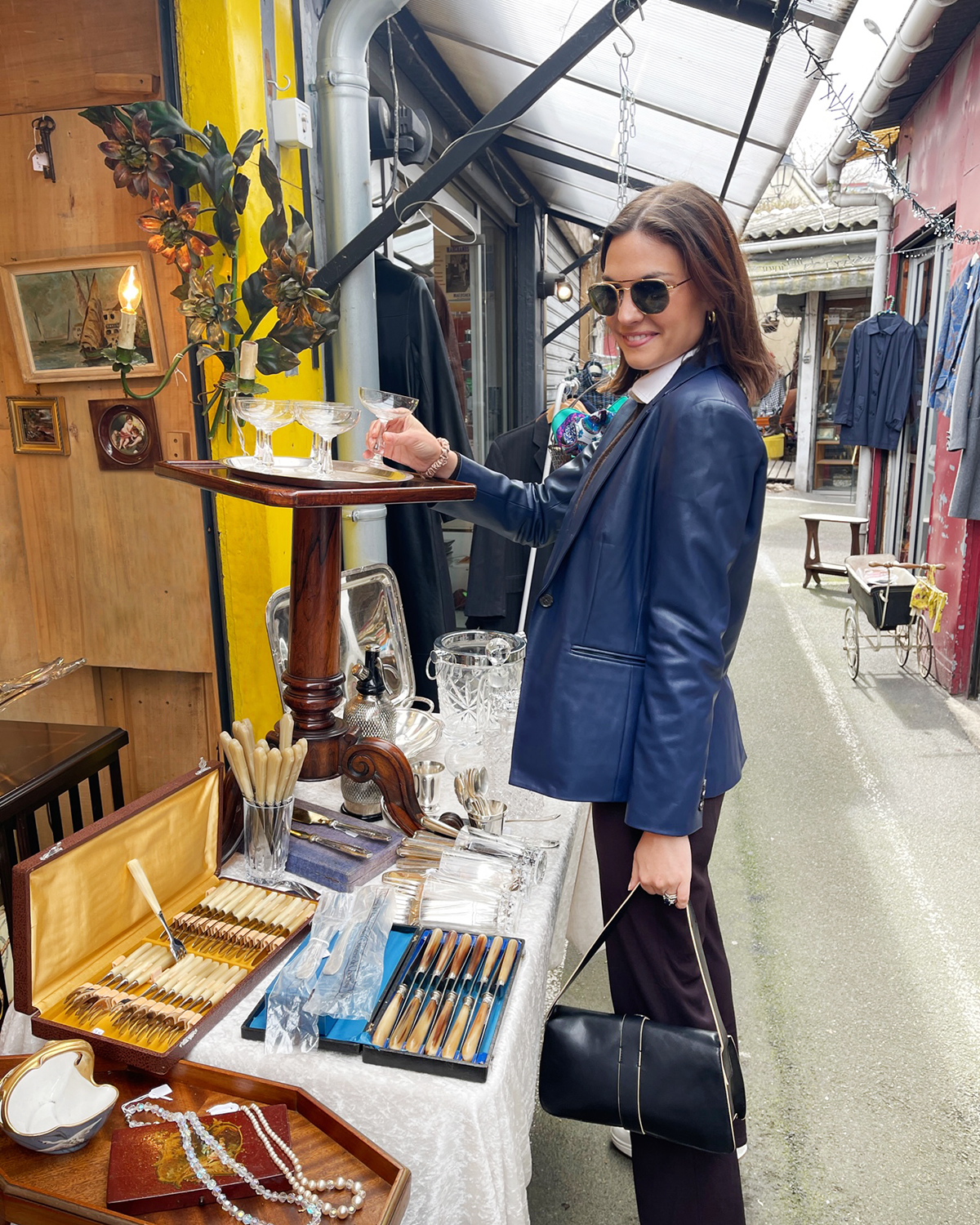We may earn revenue from the products available on this page and participate in affiliate programs.
On her first trip to shop the French fleas this summer, Lily Barfield came prepared—she rented a shipping container to haul her goods back to the U.S. As the founder of Lily’s Vintage Finds, which started as an Instagram account for family and friends until it went viral, she’s made finding the best antiques her job—and there’s no place better than France for vintage. So when it came time for her to plan her first trip, she did a ton of research—including studying up on the language via notecards on the plane. Here, she shares her absolute best tips for shopping a French flea market like a pro.
Skip Paris
We know, it sounds wild, but hear her out: “I’ve been to the Paris flea markets a couple of times, and you’re going to find the most incredible things there,” she says. “But you’re just going to find better pricing in towns like Lyon and Avignon.” Her faves? Les Puces du Canal in Lyon and Villeneuve-lès-Avignon flea market.

Don’t Sleep In
Most markets open early—about 8 a.m.—and close around lunchtime. “Getting there when they open is key to making sure that you’re getting the pieces that you want and you’re not missing out on the best deals,” says Barfield. Worried about finding caffeine preshopping? Don’t. Thankfully most markets have coffee stands.

Consider Your Wardrobe
This is not the time to don a gauzy white dress, oversize tote, and flip-flops. “My top tip is to wear a cross-body-like fanny pack so you can be hands-free,” Barfield says. “Especially whenever you’re going through some of these smaller booths, you won’t worry about your purse toppling something over.” (Another hot tip: Bring cash.) She also likes a puffer jacket and tennis shoes—mornings can be chilly, and you’ll be walking a lot.

Learn a Few French Phrases
You don’t have to be fluent, but Barfield says it’s important to study up on a few key words. “Always greet the vendors with a smile and bonjour,” she suggests. “They appreciate you making an effort.” Other than that, she highly recommends learning a few basic numbers, such as 5, 10, 20, and so on: “We found vendors to be more willing to negotiate pricing when we were able to use French numbers.”

Bring Wipes or Paper Towels
“Some things are more shined up and some things are truly diamond-in-the-rough pieces,” Barfield says. So she suggests packing wipes or paper towels so you can clean off a silver tray and determine if it’s just dusty or actually imperfect. “It’s such a simple thing that has saved me a lot of time and headaches,” she adds.

Navigate Wisely
There isn’t a clear organized layout to French fleas—for example, you won’t find all the linens in one corner, so Barfield has a plan for getting the lay of the land. “If you have your heart set on something in particular, like a copper teakettle or great French landscape painting, make one quick lap through the market with your eyes peeled specifically for those pieces,” she says. Checking off your high-priority items first means you can devote your second lap to surprises.

Make a Plan for Getting Things Home
Barfield was shopping for resale, so she booked a shipping container, but for more casual shoppers, she suggests picking up an inexpensive suitcase there and using the linens you buy—she says there’s tons of monogrammed napkins and tablecloths at the markets—to wrap up fragile items. For bigger things like furniture, you can hire an international shipping company.

Finally—Don’t Stress
“If you show up early and bring cash, it’s almost impossible not to have a good time and find some amazing pieces,” she says. “The best part of taking these pieces home with you is the fact that every time you use them, you can think back to that day you spent wandering through the French markets searching for treasures—so make the memory a good one and just enjoy the thrill of the hunt.”

